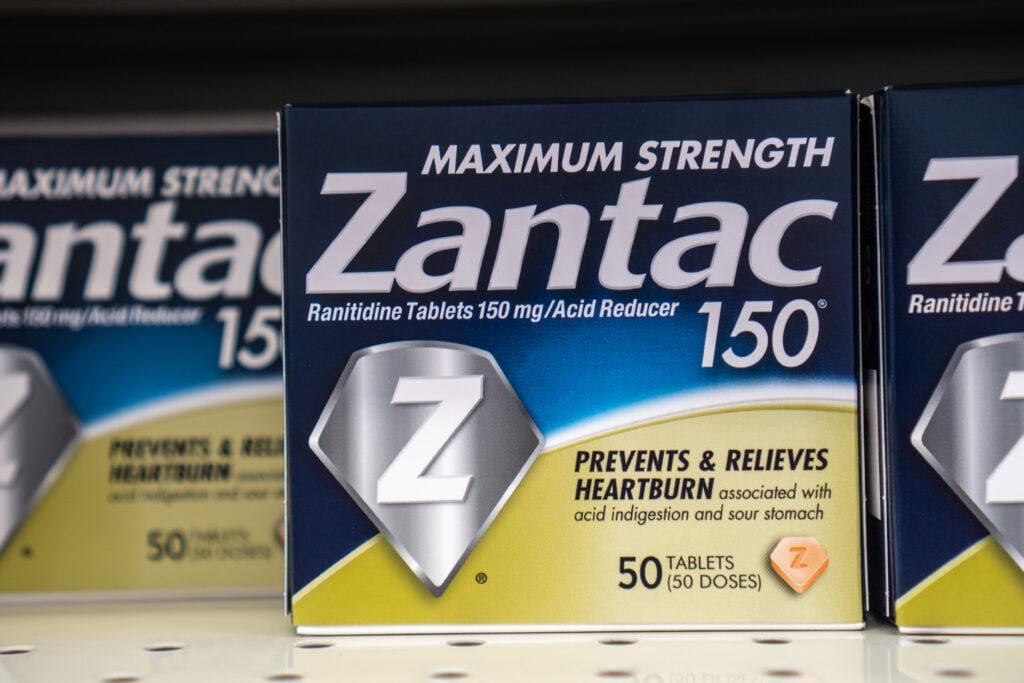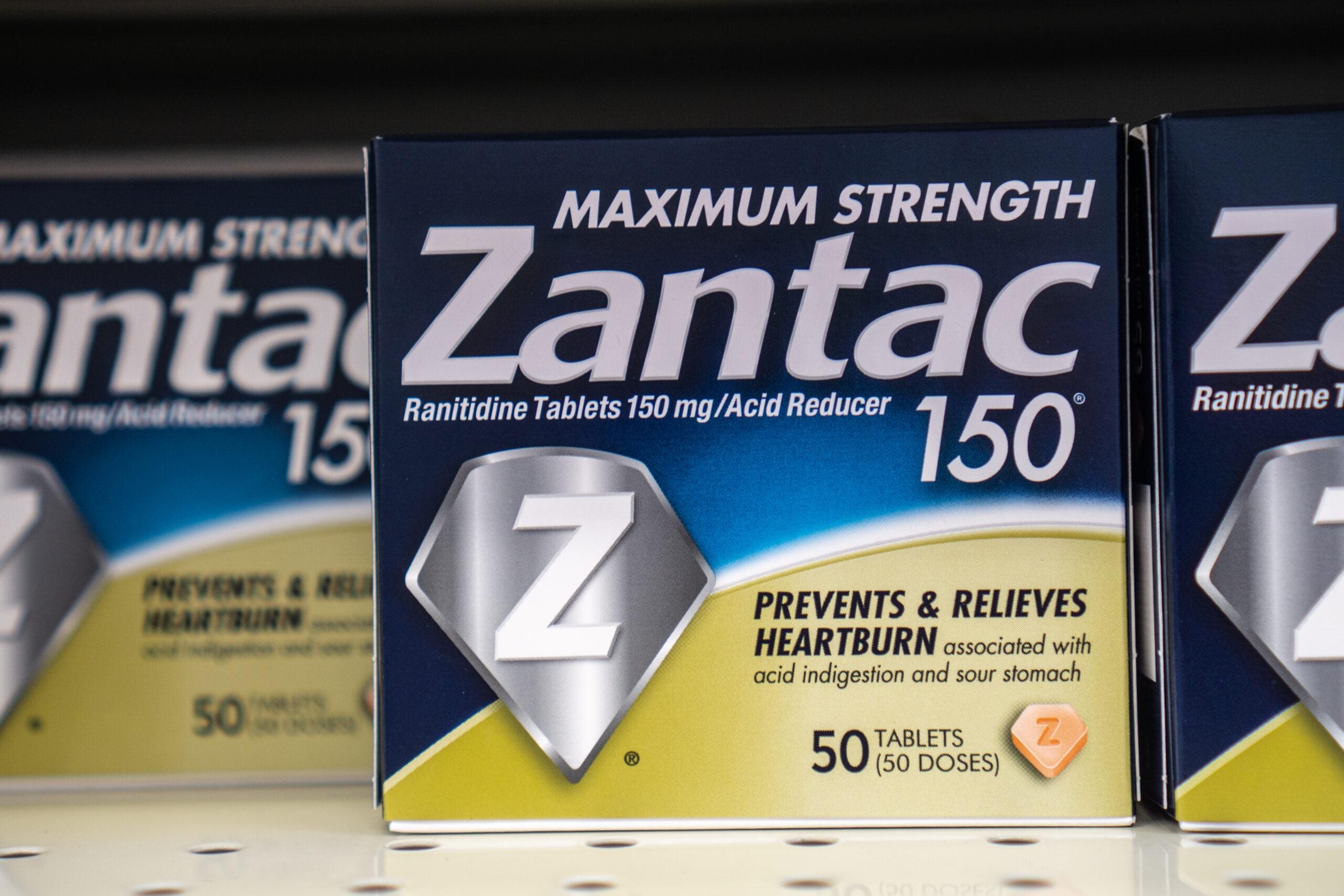Posted by : ZeroRisk Cases Marketing
Law firms are accepting new lawsuits in different states ever since a Delaware judge ruled that GSK, Pfizer, and other pharmaceutical companies must litigate in several state courts for their heartburn drug.
The Zantac lawsuits have garnered significant attention primarily due to concerns over N-Nitrosodimethylamine (NDMA) contamination. NDMA is a potent carcinogen, and its presence in Zantac (ranitidine) has led to widespread alarm among consumers and healthcare professionals alike. The issue first came to light when independent laboratories detected alarmingly high levels of NDMA in several batches of the popular heartburn medication.

The discovery of NDMA in Zantac prompted a series of investigations by regulatory bodies, notably the U.S. Food and Drug Administration (FDA). The FDA’s subsequent studies confirmed that ranitidine could degrade over time or when exposed to heat, leading to the formation of NDMA. This revelation spurred a wave of recalls, with the FDA taking swift action to remove Zantac and NDMA-containing products from the shelves.
Patients who had used Zantac for extended periods began filing lawsuits, alleging that prolonged exposure to NDMA had increased their risk of developing various cancers, including stomach, bladder, and colorectal cancer. These legal actions argue that manufacturers failed to warn consumers about the potential risks of NDMA contamination.
Class Action Lawsuit Filed Against Zantac Manufacturers
The class action lawsuit filed against the manufacturers of Zantac is a significant development in the ongoing legal battle. Plaintiffs from multiple states have come together, forming a united front to allege that pharmaceutical companies failed to disclose critical information about the potential health risks associated with Zantac. This collective action underscores the widespread impact of the issue.
The plaintiffs argue that prolonged ingestion of Zantac exposed consumers to dangerous levels of NDMA, significantly increasing their risk of developing various cancer(s). They assert that manufacturers were either aware or should have been aware of these risks but neglected to provide adequate warnings, prioritizing profits over consumer safety.
This class action lawsuit seeks compensation for medical expenses and emotional distress and aims to hold pharmaceutical companies accountable for their alleged negligence. It serves as a rallying point for affected individuals, providing them with a unified voice in their pursuit of justice. As this case progresses through the courts, it could set important legal precedents regarding corporate responsibility and consumer protection in the pharmaceutical industry.
Legal Developments In Zantac Litigation
The legal landscape surrounding the Zantac litigation has evolved significantly in recent months, reflecting a complex interplay of regulatory actions, scientific studies, and individual lawsuits. Initially triggered by findings that Zantac (ranitidine) contained potentially carcinogenic levels of N-nitrosodimethylamine (NDMA), the ensuing litigation has seen thousands of plaintiffs allege that their use of the drug led to various forms of cancer. The U.S. Food and Drug Administration’s (FDA) recall of all ranitidine products in April 2020 provided a substantial impetus for these legal actions.
Pharmaceutical companies like Sanofi and GlaxoSmithKline have faced increased scrutiny and pressure in response to mounting claims. Courts have consolidated numerous cases into multidistrict litigation (MDL), streamlining pretrial processes while attempting to efficiently manage the deluge of claims. Notably, recent court rulings have addressed pivotal issues such as causation standards and the admissibility of expert testimony. Plaintiffs have scored some victories in these preliminary battles, although defendants continue to contest liability vigorously.
Moreover, settlement negotiations are ongoing but complicated by varying degrees of alleged harm among plaintiffs.
Expert Testimony Reveals Impact Of Ndma In Zantac
In the ongoing Zantac lawsuits, expert testimony has been pivotal in shedding light on the impact of N-Nitrosodimethylamine (NDMA), a probable human carcinogen found in Zantac and other off-brands. During recent court proceedings, toxicologists and medical experts have provided compelling evidence regarding the potential health risks associated with NDMA exposure from this widely used heartburn medication. Their testimonies have underscored that even low levels of NDMA can pose significant health risks over prolonged periods.
Dr. Jane Williams, a renowned toxicologist, explained that NDMA is not naturally occurring but can form during manufacturing or through chemical reactions within the body when Zantac is ingested. She highlighted several studies linking NDMA to various cancers, including the bladder, stomach, and liver. Another expert witness, Dr. Robert Thompson, an epidemiologist specializing in carcinogenic substances, presented data from population-based studies demonstrating increased cancer incidence rates among long-term users of Zantac.
These expert testimonies have been instrumental in articulating how chronic exposure to contaminated Zantac could contribute to severe health outcomes. They provide a crucial foundation for plaintiffs seeking justice and compensation for their alleged injuries linked to NDMA-contaminated Zantac products.
Updates On Zantac Lawsuit Settlements
Several pharmaceutical companies, including Sanofi and GlaxoSmithKline (AKA GSK) and Pfizer, are embroiled in these lawsuits. A notable development is the ongoing negotiations for potential settlements to compensate affected individuals without prolonged court battles. While some cases have reached preliminary settlement agreements, many are still under litigation or awaiting trial dates.
Legal experts suggest that settlement amounts could vary significantly based on factors such as the severity of health complications and duration of Zantac usage. The complexity of these cases means that comprehensive settlements may take time to finalize. However, the willingness to engage in settlement discussions indicates a possible resolution pathway for numerous claimants seeking justice and financial redress.
As these proceedings evolve, those affected by Zantac await further announcements on finalized settlements and compensation plans.
Recent Court Rulings In Zantac Lawsuits
Recent court rulings in Zantac lawsuits have significantly shaped the trajectory of ongoing litigation related to the heartburn medication, which has been linked to cancer risks. One of the most pivotal rulings came from a federal judge in Florida who dismissed thousands of cases consolidated in multidistrict litigation (MDL). The judge ruled that the plaintiffs had failed to present sufficient scientific evidence to prove that Zantac and its active ingredient, ranitidine, directly caused their cancers.
This decision was a significant blow to many who had hoped for compensation through this legal avenue.
However, not all judicial decisions have favored the defense. Judges have allowed several lawsuits to proceed in state courts, particularly in California, Delaware, and Illinois. These courts found enough preliminary evidence for juries to consider whether pharmaceutical companies failed to warn consumers about potential risks associated with Zantac. Additionally, some state judges have denied motions by defendants seeking summary judgments or dismissals, thereby keeping alive numerous individual claims.
These mixed rulings underscore the complexity and evolving nature of Zantac-related litigation. As scientific studies emerge and legal arguments are refined, future court decisions will likely be crucial in determining outcomes for affected plaintiffs nationwide.
New Evidence Surfaces In Zantac Litigation Cases
In recent months, significant new evidence has surfaced in the ongoing Zantac litigation cases, adding complexity to the legal battles surrounding the popular heartburn medication. Researchers and legal experts have uncovered documents suggesting that manufacturers may have been aware of potential cancer risks associated with Zantac’s active ingredient, ranitidine, much earlier than previously disclosed. These revelations have intensified scrutiny on pharmaceutical companies and bolstered plaintiffs’ claims that they were not adequately warned about the drug’s dangers.
Furthermore, recent scientific studies have provided more concrete links between ranitidine and elevated levels of N-Nitrosodimethylamine (NDMA), a probable human carcinogen. This emerging data has led to increased expert testimony in courtrooms across the country, where specialists are now able to draw clearer connections between NDMA exposure from Zantac and specific types of cancer diagnoses among users.
The introduction of this new evidence is likely to impact settlement negotiations and trial outcomes significantly. As courts continue to assess these findings, plaintiffs and defendants adjust their strategies in response to what could be pivotal information shaping the future trajectory of Zantac litigation cases.
What To Expect Next In The Zantac Lawsuit
As the Zantac lawsuit evolves, stakeholders can anticipate several key developments in the coming months. First and foremost, more scientific research and expert testimonies are expected to emerge, shedding light on the alleged links between Zantac (ranitidine) and various forms of cancer. This influx of new data will be pivotal for plaintiffs and defendants as they build their cases.
Simultaneously, we can expect a series of pre-trial motions to determine what evidence will be admissible in court. These legal maneuvers could significantly impact the scope and direction of the trials. Additionally, settlement discussions may gain momentum as both sides weigh the risks and benefits of going to trial versus negotiating an out-of-court resolution.
Another crucial development will be the outcomes of bellwether trials—early cases that serve as a barometer for future litigation. The results of these trials could influence settlement strategies and shape broader legal precedents.
Lastly, regulatory bodies like the FDA may issue further guidance or rulings based on emerging scientific findings, potentially affecting ongoing litigation dynamics. Stakeholders should stay vigilant as these multifaceted developments continue to unfold.
For a more detailed look at how the ZeroRisk Compliance Plus Program™ can revolutionize your firm’s mass tort case acquisition and lead generation practices, visit us at https://www.zeroriskcases.com.
https://calendly.com/zeroriskcases
CALL 833-937-6747 OR USE OUR REQUEST A QUOTE FORM.
Edward Lott, Ph.D., M.B.A.
ZeroRisk Cases®
Call 833-ZERORISK (833-937-6747) x5


Recent Posts
- Valsartan Lawsuits Update 2024
- PFAS Litigation Update September 2024
- Latest Developments In Zantac Lawsuit
- EPA Cracks Down On Polyfluoroalkyl Substances PFAS
Categories
- Camp Lejeune
- Client Acquistion
- Client Financing
- Company Business
- Daily Dose of Law
- Digital Display Advertising
- Google Maps Ranking
- Human Trafficking
- Law Firm Info
- Lead Generation
- Litigation Funding
- Mass Tort News
- Mass Tort Signed Cases
- Personal Injury Leads
- Sex Abuse Cases
Archives
- September 2024
- July 2024
- June 2024
- May 2024
- April 2024
- February 2024
- January 2024
- December 2023
- November 2023
- October 2023
- September 2023
- August 2023
- July 2023
- January 2023
- December 2022
- November 2022
- October 2022
- September 2022
- August 2022
- June 2022
- May 2022
- April 2022
- March 2022
- February 2022
- January 2022
- December 2021
- November 2021
- October 2021